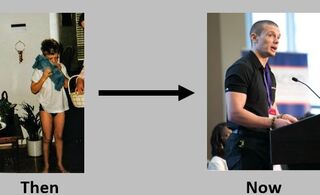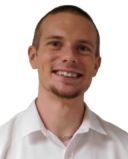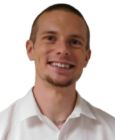Autism
How Awareness of Our Ignorance Leads to Personal Growth
Personal Perspective: Knowing that we do not know is one of the greatest truths.
Posted March 9, 2022 Reviewed by Gary Drevitch
Key points
- Awareness of our ignorance can broaden our perspective on the human condition.
- Life may take from us what we want, but it often also presents to us what we need.
- Asking "Why?" and being curious about the nature of our lives can lead us down the road of self-discovery.

My name is Russell Lehmann, and I am a motivational speaker and poet with a platform of autism, mental health, and the overall human condition. My life has not been typical by any means, even when compared to other individuals on the spectrum. I wasn’t diagnosed with autism until age 12, even though I have struggled since the day I was born. One year before my diagnosis, I dropped out of fifth grade due not only to the severity of my OCD, panic, phobias, and depression but also due to a tremendous lack of understanding and compassion from authority figures in the outside world (doctors, teachers, therapists, coaches, etc.).
Additionally, a few months prior to my diagnosis of autism, I was admitted to a psychiatric ward for five weeks, which were some of the most painful of my life. Although my family and I were relieved by the diagnosis of autism (for we now had a sense of closure and felt for the first time that we had something to work with), there were (and still are) many times when having this diagnosis attached to me only made my life more difficult. I was now not just seen as that odd kid with his hood on, sucking his thumb, tears in his eyes, not talking or making eye contact, but now I was that odd “autistic” kid, a word that, in the early 2000s, was still very mysterious and made me that much more of an “other” when compared to the vast majority of individuals.
All of the above led me to become a societal recluse for nearly half my life. This isolation was very much a slow burn that had devastating effects on my well-being. In hindsight, however, I came to realize the following: “Life may have taken from me everything I ever wanted, but in turn gave me everything I ever needed.”
For the next 14 years, my deep desire to socialize with my peers grew stronger, yet so did the confusion as to how to form any type of connection. Every weekend I would cry on my bedroom floor, thinking of all the fun other kids my age were having, and while this was a special kind of emotional torment, it is also what gave me an opportunity that very few have: the solitude in which I was able to reflect upon my struggles, ponder the nature of human behavior, and observe with rigor the ways of the world and how best I could make my debut into society when the time was right. My life turned into a test of sorts, and I took advantage of all the time on my hands to study for it non-stop.
Ironically, I pride myself on my lack of formal education, for I taught myself everything I know, and this is incredibly empowering. I had so many things taken from me at such a young age that I sought to give myself one thing that no one could ever take away from me, and that one thing turned out to be knowledge. I began to delve deeply inward, for the human microcosm adheres to the same laws of the universal macrocosm, and they are thus two sides of the same coin. Our lives are a reflection of the universe, and our insight is the mirror.
Upon my reflections, one word always stood out to me: “Why?” When we encounter a difficult period in life, especially one that is outside of our control, our first instinct is to question it, often resulting in a sense of “Why me?” or “Why now?”. Although we may never know the answer, if we are truly sincere about this question, it can lead us to learn more about different aspects of life that can make our current situation, whatever it may be, a little more comprehensible, as we have more existential context to supplement it. In short, asking “Why me?” can generalize over to our curiosity about the nature of all things, and when we begin to seek answers to seemingly unrelated external phenomena, we start to become more aware that everything in this universe is indeed connected. Thus, we gain closure that although we may never know the reasons behind our “whys,” what we do know is that there is indeed a reason, whatever it may be.
To be aware of our ignorance in this regard is one of the greatest tools for personal growth and development, for when we are cognizant of what we do not yet know (we are all ignorant to some extent, nobody knows everything), this frees us from creating preconceived notions about how life should be, which then gives our perspective on the human condition a little more space to grow.
This acts as a catalyst for tapping into our inner potential as we develop an unrestricted awareness of life and all that it encompasses. Thus, next time we find ourselves asking “Why?” we don’t necessarily need to ruminate on finding a specific reason, for we already know the greatest truth of all: We simply do not know.


